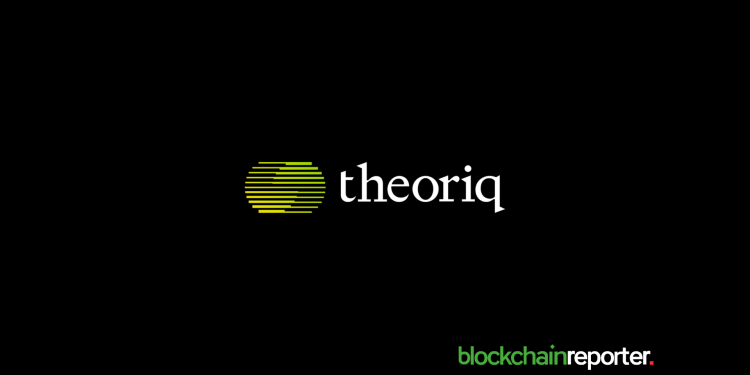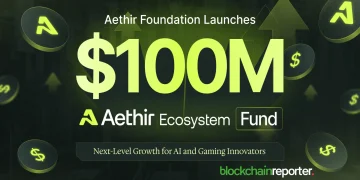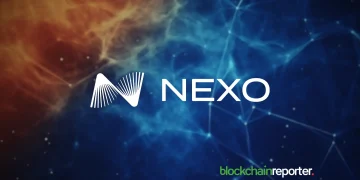In this exclusive interview, Ron Bodkin, Founder of Theoriq, delves into the transformative potential of merging blockchain and AI technologies. As a seasoned expert with a career spanning Google, the Vector Institute, and Theoriq, Ron shares his vision for decentralized AI systems, U.S. policy under new leadership, and the future of scalable agent ecosystems. Whether you’re an investor, tech enthusiast, or curious about the next big thing in AI and blockchain, this interview offers a wealth of insights from one of the industry’s leading voices. Read on to explore how Theoriq is shaping a decentralized, community-driven AI future.
Q1. Can you tell us about your journey in the AI sector and what inspired you to launch Theoriq?
I’ve spent my career immersed in building advanced AI solutions, and that’s what ultimately led to founding ChainML and later Theoriq. My time in the CTO office at Google and years of applied AI research at the Vector Institute gave me a front-row seat to the incredible potential of AI and the importance of integrating it with blockchain. With Theoriq, we’re tackling the inefficiencies and centralization issues in traditional AI systems head-on. With the goal of creating a decentralized, community-driven ecosystem of AI Agents and Collectives that promote collaboration, enhance transparency, and make cutting-edge AI accessible to everyone.
Q2. How does Theoriq’s blockchain AI agent system stand out in the current AI and crypto landscape?
As it stands, the leading AI agents available to the public are developed in black boxes – nobody knows how they’re built except for the people building them. Theoriq is a platform built to shake up the way AI is developed and shared. By using a decentralized network, Theoriq opens the door for independent developers, researchers, and smaller businesses to access and contribute to cutting-edge AI without needing massive corporate infrastructure. This means AI progress stays community-driven, accessible, and inclusive. Theoriq’s AI Agent protocol lets users interact with and deploy AI agents across a range of applications, no matter their technical expertise or business size. Scalable, user-friendly, and designed for real-world impact, Theoriq’s approach ensures AI tools become a shared resource and accessible to everyone.
Q3. As someone who works at the intersection of AI and blockchain, what are your initial thoughts on Trump’s pick for “White House A.I. & Crypto Czar”?
We are thrilled to see that the incoming administration is placing an emphasis not only on making the U.S. a hub for crypto, but AI as well. David Sacks understands the space and will look to reduce the hurdles to tech growth and innovation in the US. It’s especially encouraging to see the administration tapping David for the two exponential technologies – we believe there’s great synergy among them and it’s a signal that they recognize the importance.
Q4. How do you see this appointment impacting U.S. policy on AI and blockchain technology?
The specifics of new regulations and guidelines remain uncertain as the new administration steps in. However, we’re optimistic that this indicates AI will be a priority under Trump’s leadership. Ideally, this would create a favorable regulatory environment that balances innovation with consumer protection, guided by ethical principles to ensure responsible advancements in the industry. We’d like to see more funding for open research for safety and effective community governance rather than having monopolies dominate and increasingly drive this technology in secret.
Q5. Do you believe this decision signals a broader push for the U.S. to lead in the global AI and blockchain race? Why or why not?
We definitely see this as an indicator that Trump and his administration want the U.S. to lead AI development, largely due to the massive implications it has for a range of industries. AI is picked to be the next major disruptor, so it should be a top priority for America, ensuring we are a global leader that supports its growth but in a safe way. We believe that there’s a lot of reason to collaborate internationally rather than positioning AI as a weapons program to be developed in secret and without accountability or community involvement.
Q6. What key areas of the U.S. AI and blockchain policy do you think need urgent attention or reform?
Investing in open research for safety and effective community governance is incredibly important to allow for benefits to flow from the technology and to identify and mitigate risks. We can’t rely on monopolies to protect the public interest as this technology accelerates. Consumer protection is definitely a priority for all emerging technologies, and AI and blockchain are no exception. Reform that welcomes the shift towards decentralized AI systems should also be a focus. While the specifics of what aspects of AI should be decentralized remain a topic for debate, we strongly advocate for empowering individuals and communities. Placing control into the hands of the people—whether through decentralized data ownership, governance, or equitable access to AI tools—ensures that these technologies advance responsibly and inclusively. This approach can safeguard ethical use while driving innovation that serves the collective good.
Q7. How can decentralized AI frameworks, like Theoriq’s, contribute to shaping these policies?
Decentralized AI frameworks like Theoriq’s can play a key role in shaping policies by serving as a practical example of what decentralized structures can achieve and by advancing governance of agents – decentralization needs proper incentives to ensure that prosocial agents outcompete manipulative and deceptive agents. Theoriq can help establish industry standards in this area including robust signals of quality and trustworthiness.
Q8. Are there specific regulations or incentives you hope the new administration will implement to foster innovation in the AI and blockchain sectors?
A new administration presents an exciting opportunity to prioritize policies that promote innovation in the AI and blockchain sectors. The US could adopt a “pro-innovation” regulatory framework, similar to the UK’s approach, that supports growth while maintaining proportionate regulations that helps rather than limits startups. We would like to see incentives for open research in AI and open source development for safety, to assess dangerous capabilities and to enable effective governance. We would like to see federal regulation pre-empt the harmful blizzard of regulations of applications of AI that are emerging at the state level – a few key regulations around frontier models that are created with Billion dollar budgets is a much better trade to track and mitigate the most extreme risks while still keeping innovation racing ahead. And let’s not forget the importance of getting regulators, industry leaders, and academics on the same page. By working together, we can align innovation with ethical values and build an ecosystem where groundbreaking technologies and public trust can thrive side by side.
Q9. What role does decentralization play in advancing AI systems, and how does Theoriq leverage this principle?
Decentralization is a game-changer for advancing AI systems. It breaks down traditional barriers, democratizes access, and promotes collaboration, letting innovation thrive without being bottlenecked by a central authority. At Theoriq, decentralization is core to what we do. It unlocks exciting possibilities like dynamic Collectives—swarms of AI agents working together to tackle complex, multi-dimensional tasks. These aren’t just technical features; they’re a whole new way of thinking about AI, where interoperability, collaboration, and adaptability lead the way. By decentralizing these processes, Theoriq is building a more fair, scalable, and innovative future for AI. Decentralization allows everyone to contribute to make better agents by leveraging their knowledge – a much better future than one where a few monopolists create dystopian “drop in replacement workers” that only they control.
Q10. Do you think decentralization can address concerns about data privacy, bias, and monopolization in AI?
Decentralization can absolutely address concerns about data privacy, bias, and monopolization in AI. By shifting control away from centralized entities, it gives regular people and independent developers a real say in how AI systems are built and operated. At Theoriq, this principle is central to our mission—we’re creating a framework where communities and developers are in the driver’s seat, helping to shape AI in a way that’s fair, equitable, and accountable.
Q11. How do you envision Theoriq’s marketplace of AI agents shaping industries in the coming years?
Theoriq’s marketplace of AI Agents has the potential to transform industries by redefining how we approach knowledge work and automation. AI Agents are already beginning to make an impact across various sectors, and a transparent marketplace is critical to scale this innovation. With Theoriq, users can contribute their knowledge to create valuable agents, magnifying their expertise and they can view the best-performing agents ranked by reputation and merit, ensuring they select agents that are proven to deliver results. These agents can then be tailored for specific tasks or grouped into dynamic Collectives to tackle complex, multi-dimensional problems. Developers can build, monetize, and iterate on their agents, promoting an ecosystem of constant improvement and self learning AI. It’s a future where AI Agents work smarter and industries evolve faster.
Q12. Trump’s pick is reportedly close to figures like Elon Musk. How do such connections influence the credibility or direction of AI and blockchain policy-making?
It’s a positive to see more knowledge and expertise engaged in a critical field – Musk has proven to be both prescient and thoughtful about big issues and committed to acting on them in AI and has embraced blockchain as well. It’s important to have leaders in those positions who have real experience with these technologies and know the risks, which David Sacks certainly has. At the same time, it is important for all the nominees to be seen to be fair in how they are dealing with leaders and innovators in the space.
Q13. In your opinion, what role should prominent industry leaders like Musk play in guiding the U.S. AI and crypto strategies?
Prominent industry leaders like Musk should play an advisory role in shaping U.S. AI and crypto strategies rather than taking a direct hand in policy-making. Musk’s influence and insights are undeniably valuable, but with his varied responsibilities it makes more sense for leaders like David Sacks, who has been appointed by the new administration, to take the reins. Sacks is well-versed in the challenges and opportunities within both the crypto and AI sectors, making him a better choice to guide innovation while navigating regulatory hurdles.
Q14. Looking ahead to 2025 and beyond, what are your predictions for the convergence of AI and blockchain technologies?
Looking ahead to 2025 and beyond, the convergence of AI and blockchain technologies is set to redefine the tech landscape. Blockchain has the potential to become the native environment for AI development or at least play a major role in the industry. Its benefits—like decentralization, transparency, and secure data management—are perfectly aligned with the needs of equitable and advanced AI systems. AI agents are poised to become a massive force and driver of growth in the economy, so it’s critical to have an open, community governed foundation and standards with the right economic rails for them to work – we believe decentralization and blockchain are the essential ingredients for that.
Q15. What’s next for Theoriq? Can you share any upcoming developments or partnerships?
2025 is shaping up to be a monumental year for both the industry and Theoriq. Building on the massive success of our testnet, we’re seeing unprecedented demand for high value agents coordinating in swarms to drive real economic impact. We are working with leading projects to deliver on the promise of robust, scalable agent swarms with an initial focus on enabling the agent economy. Expect significant product enhancements, team growth, expanded partnerships, and an engaged community to amplify our impact. Make sure to follow us on Twitter to be kept up to date with all these exciting developments!























